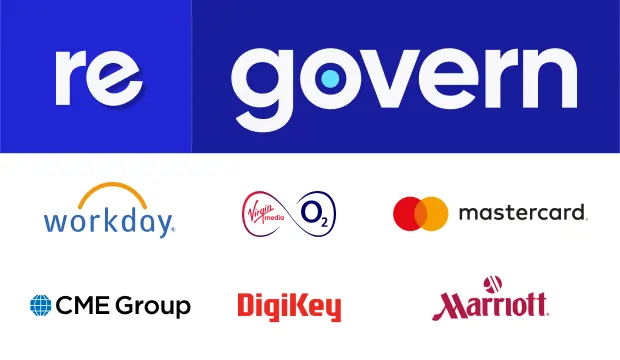Part 6: Personal Mastery
Leading yourself before leading others
Energy Management Over Time Management
Time is finite. Energy is renewable. Manage the right resource.
You can't create more hours. You can create more energy.
Most leaders obsess over calendars and to-do lists. The best leaders obsess over energy - their own and their team's.
Energy management means:
• Know what fills your tank and what drains it
• Schedule energy-giving activities before energy-draining ones
• Protect your peak hours for your most important work
• Take real breaks, not just task switches
• Say no to preserve yes capacity
Story: The Executive Who Disappeared
Our CMO was burning out. Working 80-hour weeks. Always on. Always available. Performance was slipping despite the hours.
She made a radical choice: disappeared for a week. No email. No Slack. No "quick calls." Just rest.
The team panicked initially, then adapted. They made decisions. Solved problems. Grew capabilities. When she returned, she found a stronger team and clearer priorities.
Now she disappears quarterly. The team plans for it. Her energy stays high. Her impact grows. Her example taught us: sustainability beats sprint.
Manage energy by:
1. Auditing your calendar: Color code by energy impact
2. Batching similar tasks: Context switching kills energy
3. Taking real vacations: Disconnected, not just distant
4. Investing in recovery: Sleep, exercise, mindfulness
5. Modelling boundaries: Your team will follow your lead
You can't create more hours. You can create more energy.
Most leaders obsess over calendars and to-do lists. The best leaders obsess over energy - their own and their team's.
Energy management means:
• Know what fills your tank and what drains it
• Schedule energy-giving activities before energy-draining ones
• Protect your peak hours for your most important work
• Take real breaks, not just task switches
• Say no to preserve yes capacity
Story: The Executive Who Disappeared
Our CMO was burning out. Working 80-hour weeks. Always on. Always available. Performance was slipping despite the hours.
She made a radical choice: disappeared for a week. No email. No Slack. No "quick calls." Just rest.
The team panicked initially, then adapted. They made decisions. Solved problems. Grew capabilities. When she returned, she found a stronger team and clearer priorities.
Now she disappears quarterly. The team plans for it. Her energy stays high. Her impact grows. Her example taught us: sustainability beats sprint.
Manage energy by:
1. Auditing your calendar: Color code by energy impact
2. Batching similar tasks: Context switching kills energy
3. Taking real vacations: Disconnected, not just distant
4. Investing in recovery: Sleep, exercise, mindfulness
5. Modelling boundaries: Your team will follow your lead
The Compound Effect of Small Actions
Leadership isn't grand gestures. It's daily decisions compounded over time.
Small actions, consistently applied, create extraordinary results.
That extra minute listening. That thoughtful thank you. That hard conversation you didn't avoid. That standard you didn't compromise. These add up.
Story: The Five-Minute Rule
A engineering manager started spending five minutes each morning writing personal notes to team members. Not performance feedback. Just human connection. "Saw your kid's photo - congrats!" "Your debugging yesterday was masterful."
Seemed trivial. Five minutes. But compounded daily? 25 minutes weekly. 100 minutes monthly. More importantly: 365 touches yearly showing care.
Her team's engagement scores went from bottom quartile to top. Retention: 100%. Performance: exceptional. Cost: five minutes daily.
She's now our CTO. Why? She understood that leadership is built in moments, not monuments.
Small actions that compound:
1. Acknowledge people by name: Everyone wants to be seen
2. Follow up on commitments: Trust is built in kept promises
3. Share credit immediately: Recognition has a half-life
4. Address issues quickly: Small problems grow exponentially
5. Express gratitude specifically: "Thanks" vs "Thanks for staying late to fix the customer issue"
Small actions, consistently applied, create extraordinary results.
That extra minute listening. That thoughtful thank you. That hard conversation you didn't avoid. That standard you didn't compromise. These add up.
Story: The Five-Minute Rule
A engineering manager started spending five minutes each morning writing personal notes to team members. Not performance feedback. Just human connection. "Saw your kid's photo - congrats!" "Your debugging yesterday was masterful."
Seemed trivial. Five minutes. But compounded daily? 25 minutes weekly. 100 minutes monthly. More importantly: 365 touches yearly showing care.
Her team's engagement scores went from bottom quartile to top. Retention: 100%. Performance: exceptional. Cost: five minutes daily.
She's now our CTO. Why? She understood that leadership is built in moments, not monuments.
Small actions that compound:
1. Acknowledge people by name: Everyone wants to be seen
2. Follow up on commitments: Trust is built in kept promises
3. Share credit immediately: Recognition has a half-life
4. Address issues quickly: Small problems grow exponentially
5. Express gratitude specifically: "Thanks" vs "Thanks for staying late to fix the customer issue"
Stay Hungry, Stay Humble
The moment you think you've made it, you've started declining.
Success is not a destination. It's a continuous journey of becoming.
Hunger keeps you growing. Humility keeps you learning. Together, they keep you leading.
Story: The VP Who Went Back to IC
After five years as VP of Engineering, he felt disconnected. Too many meetings. Too little building. He was successful but unsatisfied.
He made an unusual request: return to individual contributor for six months. Leadership was shocked. His team was confused. His peers thought he'd lost it.
Six months later, he returned to leadership transformed. He'd rebuilt technical skills, reconnected with customer pain, and remembered why he loved technology. His credibility soared. His decisions improved. His team thrived.
He now requires all engineering leaders to do "IC rotations" annually. Stay hungry by staying connected to the work.
Maintain hunger and humility by:
1. Doing real work regularly: Leaders who only lead lose touch
2. Learning from everyone: The newest hire might have the best idea
3. Admitting ignorance: "Teach me" is powerful
4. Celebrating others' success: Their win is your win
5. Remembering your roots: You were once where they are
Success is not a destination. It's a continuous journey of becoming.
Hunger keeps you growing. Humility keeps you learning. Together, they keep you leading.
Story: The VP Who Went Back to IC
After five years as VP of Engineering, he felt disconnected. Too many meetings. Too little building. He was successful but unsatisfied.
He made an unusual request: return to individual contributor for six months. Leadership was shocked. His team was confused. His peers thought he'd lost it.
Six months later, he returned to leadership transformed. He'd rebuilt technical skills, reconnected with customer pain, and remembered why he loved technology. His credibility soared. His decisions improved. His team thrived.
He now requires all engineering leaders to do "IC rotations" annually. Stay hungry by staying connected to the work.
Maintain hunger and humility by:
1. Doing real work regularly: Leaders who only lead lose touch
2. Learning from everyone: The newest hire might have the best idea
3. Admitting ignorance: "Teach me" is powerful
4. Celebrating others' success: Their win is your win
5. Remembering your roots: You were once where they are




















